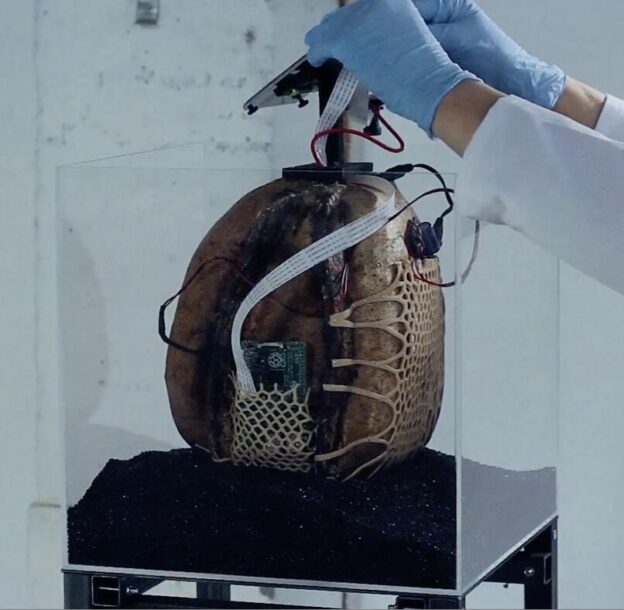For most of the past decade I have been growing, hacking, digitizing, building, and thinking
about beehives – particularly those in urban areas. Collaborating with a team of biologists, I
am reconceptualizing what a beehive is and what it can be. The bio-art project The
Intelligent Beehive monitors the behaviour of urban honeybee colonies as a source of
inspiration for ongoing artistic research into issues of ecological, architectural and social
sustainability in urban environments. Bees are bio-indicators. They reflect the health of their surrounding ecosystem as well as the cumulative effects of different pollutants. In many
industrialized regions the colonies are threatened. Air pollution, the compromised state of
their foraging fields, pesticides and parasites are among the main factors. To raise
awareness about the disappearance of the honeybees, I imagined the concept of an
Intelligent Beehive. It is a radically new beehive. Tailored to the needs of the bees (instead
of those of the beekeeper), and augmented with supportive bacteria, it is intended to help
the bees in their survival and pollinating tasks, and thus protect the biodiversity of the
environment.
My Intelligent Beehive has been a starting point for exploring possible
futures through artistic research on materials science and biotechnology.
